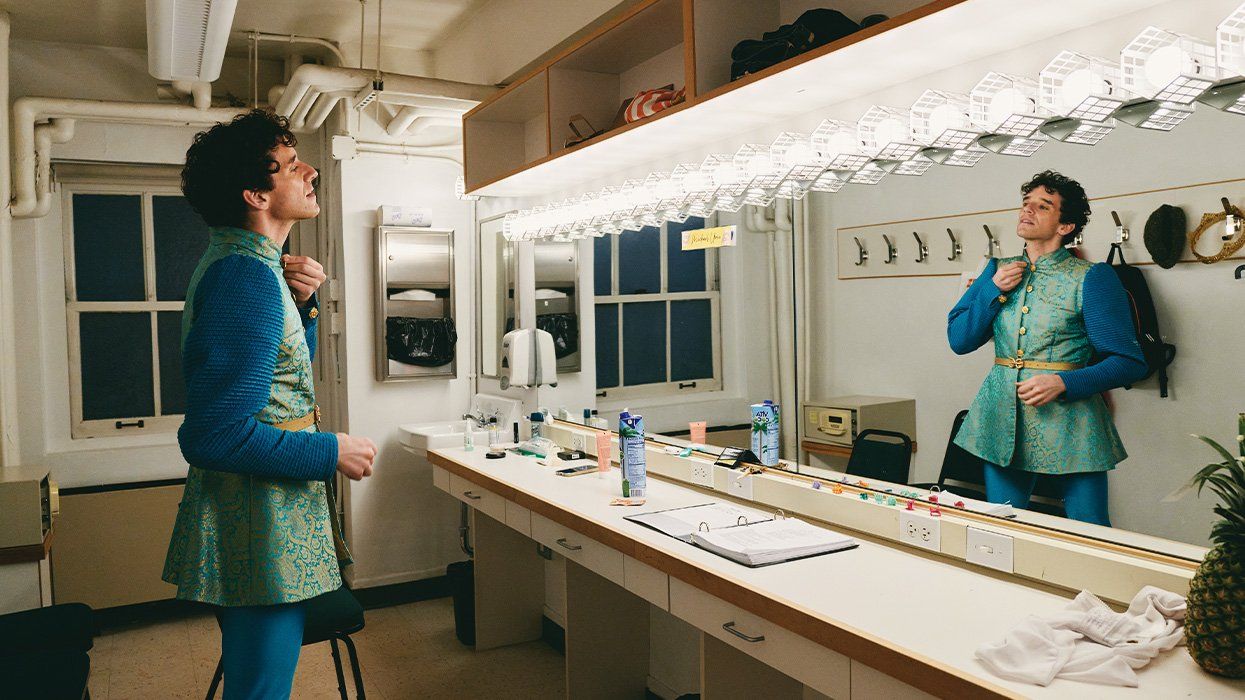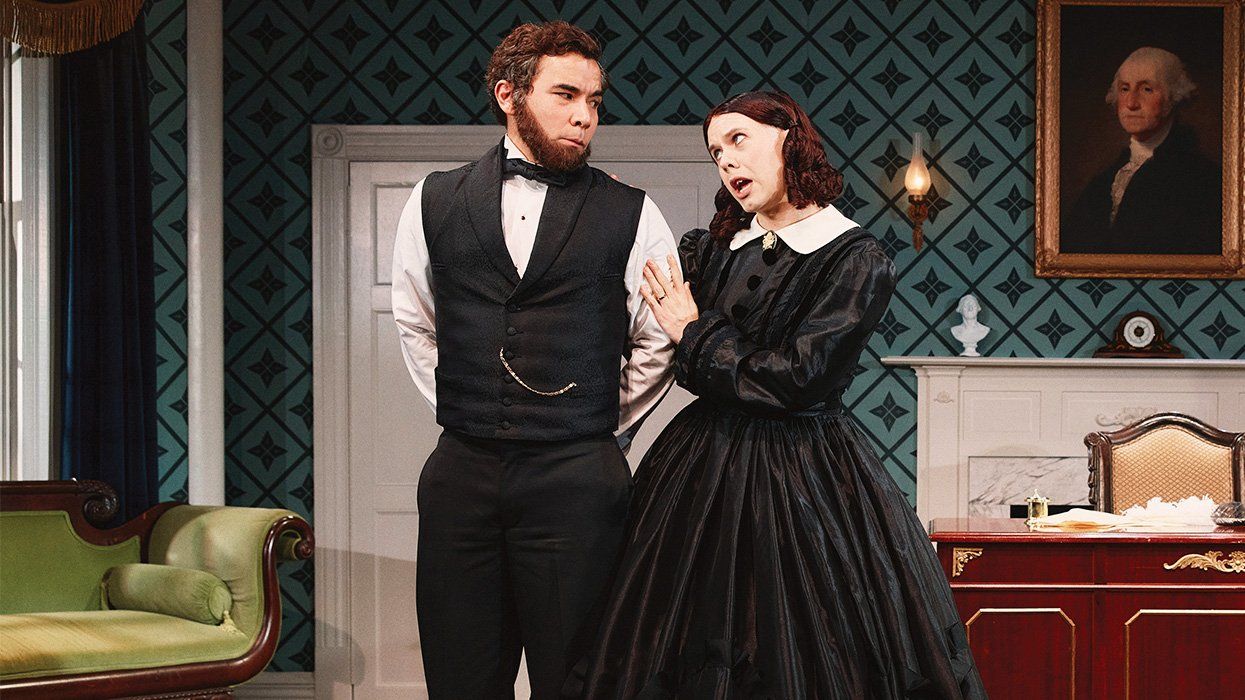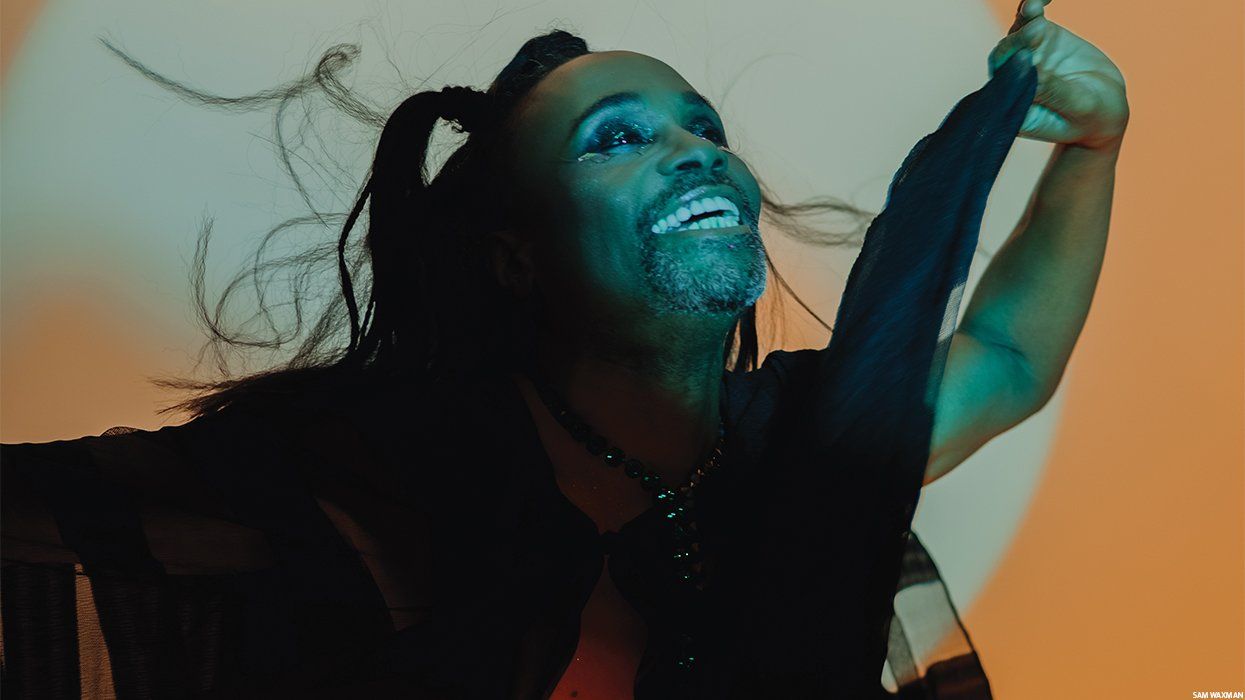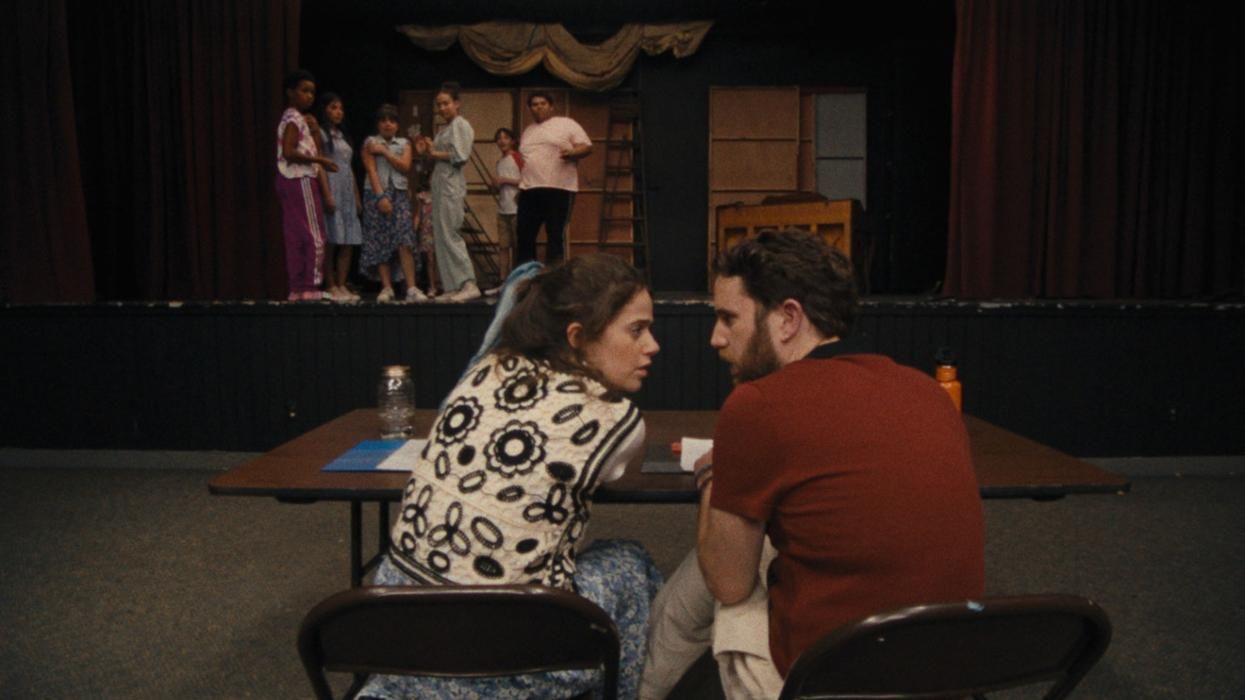Photo by Joan Marcus
Robert Askins was born in 1980 in Cypress, Texas (a suburb of Houston) and is currently channeling a terrifying taste of his Harris County upbringing in the Broadway production of his play Hand to God. The setting for the crowd-pleasing comedy is "Somewhere in Texas where the country meets the city." Despite Houston's far-reaching sprawl, it's an accurate description of Cypress--and creates the perfect sleepy, suburban setting for a play where all Hell breaks loose (literally).
Tyrone, the little sock puppet of horrors that is attached to Jason's right arm, is quite the character. With the bravado of Seymour Krelborn's Audrey II and the vulgarity of the denizens of Avenue Q, it's easy to understand why Off-Broadway audiences couldn't get enough of the sprightly, yet demonic, Tyrone.
In the dual lead roles, Steven Boyer holds the audience in rapt amazement for the show's duration. As Jason, the audience comes to love him for being the awkard kid who seems completely out of place in every social situation, including one-on-one chats with his mom. Playing the foul-mouthed, larger-than-life hand puppet Tyrone, Boyer utilizes keen comedic timing and a punchy, Muppet-inspired voice that fits his vitriolic character. It's his puppeteering skills that make the audience lose sight of the tools required to manipulate the fabric on his arm. Watching Boyer flip back and forth from Jason to Tyrone, it's easy to suspend disbelief and think that Tyrone exists independently of Boyer. With a few subtle twists of Boyer's wrist, and the almost indecipherable rolling of his fingers, Tyrone's arms flail, point, and express emotions as if the puppet truly was alive.
Steven Boyer in a scene from 'Hand to God' | Photo by Joan Marcus
Sarah Stiles, an Avenue Q alum, superbly brings her own puppet to life as well. Portraying the timid and socially awkward Jessica, Stiles tears the house down in the second act with her busty, vivacious sex-kitten of a hand puppet that allows her to enter Jason's inner sanctum by distracting Tyrone. Here, if the audience hasn't realized it already, the play's wit erodes to put its themes on blatant display. Askins uses Hand to God to explore the necessity of evil for good to exist and allows audiences to see the different permutations of grief. These puppets allow the children a safe way to express their innermost feelings and desires. These are the thoughts and feelings that society deems as evil, base, raw, animal, and even primal. But, are they actually wrong?
With utter whimsy, the showstopping reveal of Beowulf Boritt's scenic design for the second act allows the audience members who want to see these elements as pure evil, stemming from the bowels of Hell, their money's worth. For those of us who ponder humanity, we instead see a fragile boy who's releasing his inner turmoil in the only way he knows how--through an absurd degradation of the modern Christian church. The troubles of his life, because he hasn't figured out a safe way to deal with them, consume him and erupt. As Tyrone inflicts pain on others, Jason must find a way to best Tyrone. How do you quiet that angry, questioning voice of teenage rebellion? How do you tame the inner beast once it has brought rampant, unrelenting havoc to all you know? How do you defeat that aspect that will never truly go away?
Askins tackles these concepts in his script and, along with the direction by Moritz von Stuelpnagel, treats audiences to some of the most jaw-dropping, sexually explicit, and bloodily violent answers to these often-pondered questions that Broadway has ever seen. This is the aspect that makes Hand to God a spectacle worthy of the scale of its Broadway staging. Unfortunately, after the laughs subside, the meaty material tastes like day-old bread. Askins doesn't bring anything new to these old-as-time debates; he simply rephrases them through a rehashed, yet refreshed, Faustian tale. Just as coriander was originally used to disguise the smell of spoiled meats, Hand to God's sharp humor makes its tired themes palatable. The exception is the entirely boring lack of chemistry between Margery (Geneva Carr) and Pastor Greg (Marc Kudish). When interacting with other characters, these two appear interesting, but their budding amorous relationship is unappealingly stale, making their shared moments a drag.
Hand to God is worth its hearty guffaws, despite the overdone and overwrought flat social commentary. This quirky fare, complete with enough Houston-area references to make this Texas transplant wonder how New Yorkers have actually fallen so in love with the play, truly seems to be the creepily enjoyable non-musical offspring of Avenue Q and Book of Mormon. The cast and crew perform the irreverent work with enough vigor to ensure, as the marquee says, that Broadway goes to Hell in a hand puppet -- without sending the audience home on a sour note.
Hand to God is currently playing at the Booth Theatre, 225 W. 45th St., NYC.































